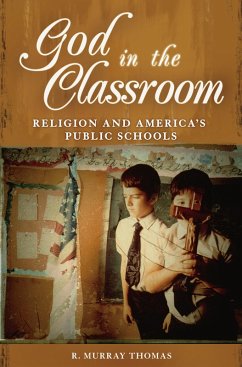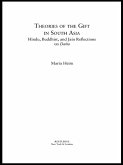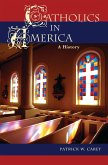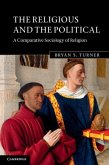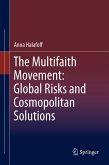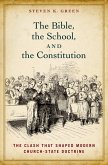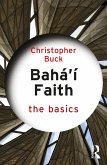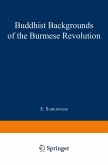To help readers gain a better understanding of conflicts over the proper role of religion in American public schools, this book focuses on the seven major types of conflicts that have become particularly confrontational. Thomas does not take sides; rather, he lays out the arguments, their historical and cultural contexts, and the groups that debate them and their goals. Anyone wishing to gain a better understanding of the controversies surrounding religion in American schools will find here not just a review of the issues, but a deeper consideration of the causes, consequences, and future of the debates.
Conflicts over the proper role of religion in schools-and particularly in public schools supported by tax monies-are frequently featured in news reports. For example, in the United States there currently are conflicts over the teaching of evolution, inserting the word God in the pledge of allegiance, conducting school holiday celebrations, posting the biblical Ten Commandments in schools, and praying at school functions. People who are interested in such controversies often-or, perhaps, usually-fail to understand the historical backgrounds to the conflicts and therefore do not recognize the very complex factors that affect why the controversies become so heated. To help readers gain a better understanding of such matters, this book focuses on the seven major types of conflicts that have become particularly confrontational during the first decade of the twenty-first century.
The cases on which the chapters focus concern issues that currently are being hotly debated in America. Controversies are described in relation to their historical origins and the author shows how the history affects current understanding of the issues. Thomas does not take sides in the arguments; rather, he lays out the arguments, their historical and cultural contexts, and the groups that debate them and their goals. Anyone wishing to gain a better understanding of the controversies surrounding religion in American schools will be happy to find here not just a review of the issues, but a deeper consideration of the causes, consequences, and future of the debates and the role of religion in our public schools.
Conflicts over the proper role of religion in schools-and particularly in public schools supported by tax monies-are frequently featured in news reports. For example, in the United States there currently are conflicts over the teaching of evolution, inserting the word God in the pledge of allegiance, conducting school holiday celebrations, posting the biblical Ten Commandments in schools, and praying at school functions. People who are interested in such controversies often-or, perhaps, usually-fail to understand the historical backgrounds to the conflicts and therefore do not recognize the very complex factors that affect why the controversies become so heated. To help readers gain a better understanding of such matters, this book focuses on the seven major types of conflicts that have become particularly confrontational during the first decade of the twenty-first century.
The cases on which the chapters focus concern issues that currently are being hotly debated in America. Controversies are described in relation to their historical origins and the author shows how the history affects current understanding of the issues. Thomas does not take sides in the arguments; rather, he lays out the arguments, their historical and cultural contexts, and the groups that debate them and their goals. Anyone wishing to gain a better understanding of the controversies surrounding religion in American schools will be happy to find here not just a review of the issues, but a deeper consideration of the causes, consequences, and future of the debates and the role of religion in our public schools.
Thomas attempts to show how religious interests intersect with the contemporary American public school. After a brief introduction and a chapter that details the history of religion in education, the book takes the form of a straightforward, issue by issue analysis of religion in education. The historical development of each issue (e.g., Darwinism, school prayer, release time for religious activities) is described, followed by a depiction of the current political landscape of a given issue, and an explanation of the kinds of arguments which are made about various issues. The book is well written, and comes across as an informative and straightforward approach to delineate a range of religious/educational issues. In this sense, it is a good starting point for any student or scholar who is interested in gaining a basic understanding of religion and education in America... the text makes this survey of the role of religion in public schools very accessible to a range of readers. Recommended. All levels. CHOICE Thomas looks at controversies about religion in schools as an interaction between the perspectives of the state, the church, secularists or the concerned secular public, and public schools. The controversies he profiles include Darwin, prayer and scripture reading, financial support, holidays, and sexual matters. Reference and Research Book News Tells the history of several current controversies, such as prayer in schools, with guidelines for educators on navigating them legally. Education Week [T]homas here explains the complex story of how religion in public school contexts is interpreted in a form that is simple but not simplistic, mixing cogent insights about the historical roots of America's current dilemmas. He presents not just a review of the issue but devotes nine chapters to the analysis of specific issues, e.g., the teaching of evolution, conducting school holiday celebrations, and praying at school functions. Thomas brings his admirable analytical approach and nonbiased treatment to a multiplex issue. Readers will find him a wise companion, offering guidance in grasping the ramifications of this subject along with a clear understanding of what it takes to do justice to the manifold aspects of a subject that sometimes ignites more controversy than dialog. His deeper consideration of the causes, historical roots, and consequences of the debate contributes to the outstanding research value of this work and makes it an essential addition to academic and research libraries. Library Journal

